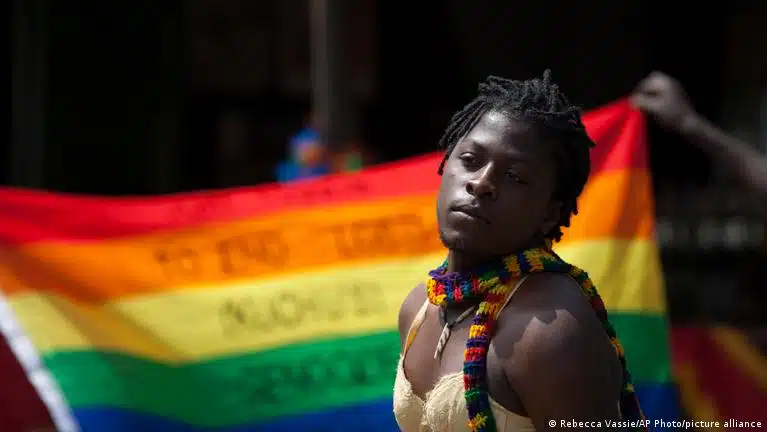Legislators from the East African Nation passed contentious anti-LGBTQ+ legislation on Tuesday. If signed into law, it would impose capital punishment on homosexual acts. The legislation is receiving criticism from human rights advocates globally.
The law was passed by a majority of legislators in the Ugandan Parliament. Out of 389 parliamentarians, only two voted against its passage. The two were Fox Odoi-Oywelowo and Paul Kwizera Bucyana, both members of the ruling party.
Ugandan Parliament by Robina Rwakoojo
The bill was placed before the Ugandan Parliament by Robina Rwakoojo, the chairperson for legal and parliamentary affairs. It has now been sent to the president for his assent. If Ugandan President Yoweri Museveni signs it into law, LGBTQ+ individuals could face extremely harsh penalties for identifying as sexual minorities or for engaging in queer intercourse.
This new law comes in the face of strengthening anti-LGBTQ+ sentiments in the nation. The sexual minorities in Uganda face both social and legal persecution.
Homosexual acts are already criminal in Uganda. However, this legislation seeks to go even further. Human Rights Watch has stated that the new law seeks to prohibit mere identification as a member of the LGBTQ+ community. It discriminates and criminalizes individuals based on their sexual identity. Many see it as an attempt at ensuring the erasure of the queer community.
The stringent nature of the laws has caused activists to term it ‘hate legislation’. Under its provisions, both the death penalty and life in prison can be imposed for engaging in homosexuality. Capital punishment can also be imposed on the ‘recruitment, promotion and funding’ of same-sex activities. It outlaws promoting, abetting, or conspiring to undertake queer acts. Therefore, unrelated citizens, friends, and family are required to report sexual minorities to authorities.
A category termed ‘aggravated homosexuality’ in the bill can attract harsher punishments, including capital punishment. ‘Aggravated homosexuality’ includes homosexual acts with a minor, HIV-positive individuals, etc.
While the final draft is yet to become publicly available, parliamentary discussions included incorporating provisions against grooming or trafficking for homosexual acts. There were also discussions on criminalizing and punishing LGBTQ+ aid organizations and movements.

Sexual minorities are already under immense threat and attack in Uganda. This bill leaves them further vulnerable to exploitation and abuse. Members of the queer community are facing blackmail and extortion. Even government authorities are extorting gay individuals in certain parts of the country. The Ugandan queer community also risks mob violence and societal ostracization. The bill attracts stringent provisions against supportive friends and family.
The legislation comes at a time when anti-LGBTQ rhetoric and sentiments are strengthening its hold. President Museveni, who can utilize the veto to prevent the bill from becoming law, has himself made anti-gay remarks in the past weeks. He has claimed that the issue is one of national sovereignty and fighting against the imposition of western values on the African population.
Many supporters of the bill cite the protection of children as the reason for their support. Yet others view the recent legislation as a ploy to distract the public from vital national and economic issues.
In 2014, the Ugandan Court struck down similar anti-LGBTQ+ legislation. The law attempted to criminalize the funding and promotion of queer activities or organizations. The court struck down the law on procedural grounds, citing a lack of quorum required to pass the legislation.
The recent bill passed on Tuesday is the latest anti-LGBTQ+ law to come out of Africa. Most African nations (30 countries) have already outlawed Homosexuality, citing the conservative Christian sentiments of their population.
Parliamentarian Odoi-Oywelowo, who voted against the bill explained that it is unconstitutional. He remarked that it is a regressive step away from the achievements made in the battle against sexual and gender-based violence, violating all existing legal norms.












